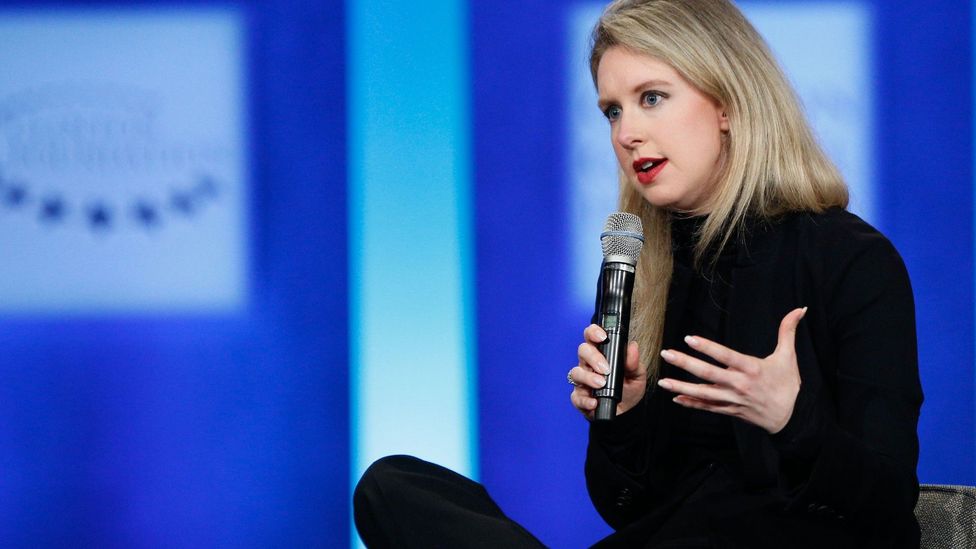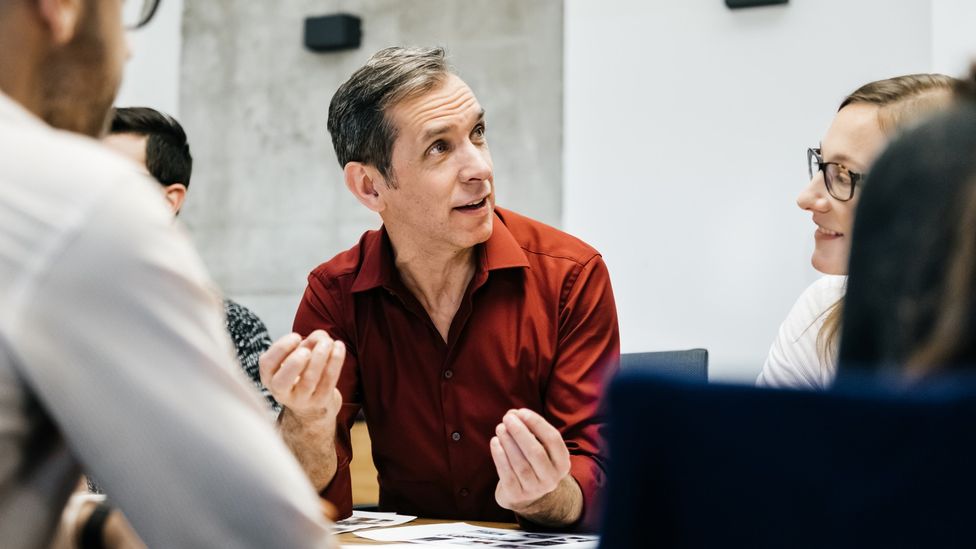你很容易认为自己知识渊博。虽然你可能拥有丰富的技能和专业知识,但你知道的很可能比你想象的要少。
If you consider yourself reasonably intelligent and educated, you might assume that you have a fair grasp on the core ways the world works – knowledge about the familiar inventions and natural phenomena that surround us.
如果你认为自己还算聪明,受过一定的教育,那么你可能会认为自己对世界运行的核心方式--我们身边熟悉的发明和自然现象--已经有了一定的了解。
Now, think about the following questions: How are rainbows formed? Why can sunny days be colder than cloudy days? How does a helicopter fly? How does a toilet flush?
现在,请思考以下问题:彩虹是如何形成的?为什么晴天比阴天更冷?直升机是如何飞行的?马桶是如何冲水的?
Next, ask yourself: could you give a detailed response to any or all these questions? Or do you have only the vaguest gist of what’s happening in each case?
接着,问问自己:你能详细回答这些问题中的任何一个或所有问题吗?还是你对每种情况下发生的事情只有最模糊的印象?
If you are like many of the participants in psychological studies, you may have initially expected to perform very well. However, when they are asked to offer a nuanced answer to each question, most people are completely stumped – just as you may be, too.
如果你和许多心理学研究的参与者一样,可能一开始以为自己会表现得很好。然而,当他们被要求对每个问题做出细致入微的回答时,大多数人都会完全陷入困境--你可能也是如此。
This bias is known as an “illusion of knowledge”. You may think that these specific examples are trivial – they’re the kinds of questions, after all, that an inquisitive child might ask you, where the worst consequence may be a red face in front of your family. But illusions of knowledge can afflict our judgement in many domains. In the workplace, for example, it can lead us to overclaim our knowledge in an interview, overlook the contributions of our colleagues and take on jobs we may be wholly unable to perform.
这种偏见被称为 "知识幻觉"。你可能会认为这些具体的例子微不足道--毕竟,这些问题是好奇的孩子可能会问你的,最坏的后果可能是在家人面前面红耳赤。但是,对知识的幻想会在很多领域影响我们的判断力。例如,在工作场所,它会让我们在面试时夸大自己的知识,忽视同事的贡献,从事自己可能完全无法胜任的工作。
Many of us go through life completely oblivious to this intellectual arrogance and its consequences. The good news is that some psychologists suggest there may be some disarmingly simple ways to avoid this pervasive thinking trap.
我们中的许多人在生活中完全无视这种智力上的傲慢及其后果。好消息是,一些心理学家提出了一些简单易行的方法来避免这种普遍存在的思维陷阱。

Passive observation can increase people’s confidence in their abilities to perform complex life-or-death tasks, such as landing a plane (Credit: Getty Images)
被动观察可以增强人们对自己执行复杂的生死任务(如飞机着陆)能力的信心(图片来源:Getty Images
Unknown unknowns 未知数
The illusion of knowledge – also called the “illusion of explanatory depth” – first came to light in 2002. In a series of studies, Leonid Rozenblit and Frank Keil at Yale University first provided participants with example explanations of scientific phenomena and technological mechanisms, which were scored on a scale of 1 (very vague) to 7 (very thorough). This ensured all participants were on the same page when it came to judging what comprised a “vague” or “thorough” understanding of a topic.
知识幻觉--又称 "解释深度幻觉"--最早出现于 2002 年。在一系列研究中,耶鲁大学的列昂尼德-罗曾布利特(Leonid Rozenblit)和弗兰克-凯尔(Frank Keil)首先向参与者提供了对科学现象和技术机制的解释示例,并按1分(非常模糊)到7分(非常透彻)的标准进行评分。这确保了所有参与者在判断什么是对某一主题的 "模糊 "或 "透彻 "理解时都站在同一起跑线上。
Next came the test. When presented with further science and tech questions, the participants had to rate how well they thought they would be able to answer each one, using that same scale, before writing out their explanation in as much detail as possible.
接下来是测试。面对更多的科学和技术问题,参与者必须使用相同的量表对他们认为自己能够回答的每个问题的程度进行评分,然后尽可能详细地写出他们的解释。
Rozenblit and Keil found that the participants’ initial appraisals of their understanding were often dramatically optimistic. They assumed they could write paragraphs on the subject, but often failed to offer more than the barest gist of an answer – and afterwards, many expressed surprise at how little they knew.
罗曾布利特和基尔发现,参与者对自己理解能力的初步评估往往非常乐观。他们认为自己可以写出关于这个主题的段落,但往往只能提供最基本的答案--事后,许多人对自己所知甚少表示惊讶。
The researchers suspected that the overconfidence arose from the participants’ ability to visualise the concepts in question; it’s not hard to picture the flight of a helicopter, for example, and the ease with which that mental film came to mind led the participants to feel more confident about explaining the mechanics of its movements.
研究人员怀疑,这种过度自信源于参与者将相关概念形象化的能力;例如,想象直升机的飞行过程并不难,而这种脑海中浮现的画面让参与者对解释直升机的运动机理更有信心。
Since this seminal paper, psychologists have unveiled illusions of knowledge in many different contexts. For example, Matthew Fisher, an assistant professor in marketing at
自从这篇开创性的论文发表以来,心理学家已经在许多不同的场合揭示了知识幻觉。例如,德克萨斯州南卫理公会大学市场营销助理教授马修-费舍尔(Matthew Fisher
Southern Methodist University, Texas, has found that many university graduates vastly overestimate their grasp of their college major, once they have left their studies.
德克萨斯州南卫理公会大学市场营销助理教授马修-费舍尔(Matthew Fisher)发现,许多大学毕业生在离开校园后,会大大高估自己对所学专业的掌握程度。
Much like the first experiment, the participants were asked to rate their understanding of different concepts before providing a detailed explanation of what they meant. This time, however, the questions came from the subject they had studied years before. (A physics graduate might have attempted to explain the laws of thermodynamics, for example.) Thanks to the natural attrition of their memories, the participants seemed to have forgotten many of the important details, but they hadn’t noticed how much knowledge they had lost – leading them to be overconfident in their initial predictions. When judging their understanding, they assumed that they knew just as much as when they were completely steeped in their subject.
与第一次实验一样,参与者被要求在对不同概念的含义做出详细解释之前,对自己的理解程度进行评分。不过,这次的问题来自他们多年前学习过的科目。(例如,物理系毕业生可能会尝试解释热力学定律)。由于记忆的自然衰减,参与者似乎已经忘记了许多重要的细节,但他们并没有注意到自己丢失了多少知识--这导致他们对自己最初的预测过于自信。在判断自己的理解能力时,他们假定自己所掌握的知识与完全沉浸于所学知识时一样多。
Many of us overestimate how much we can learn by observing others – resulting in an ‘illusion of skill acquisition’
我们中的许多人都高估了通过观察他人能学到多少东西,从而造成了 "掌握技能的错觉"。
Further research has shown that having online resources at our fingertips may feed our overconfidence, as we mistake the wealth of knowledge on the internet for our own memories. Fisher asked one group of participants to answer questions – such as “how does a zipper work?” – with the aid of a search engine, while another group were simply asked to rate their understanding of the topic without using any additional sources. Afterwards, both groups went through the original test of the illusion of knowledge for four additional questions – such as “how do tornadoes form?” and “why are cloudy nights warmer?”. He found that the people who had used the internet in their initial question demonstrated greater overconfidence in the subsequent task.
进一步的研究表明,我们唾手可得的网络资源可能会助长我们的过度自信,因为我们会误以为网络上的丰富知识就是我们自己的记忆。费舍尔让一组参与者回答问题,比如 "拉链是如何工作的?- 等问题,而另一组人则被要求在不使用任何其他资源的情况下,简单地评价他们对该主题的理解。之后,两组受试者又针对 "龙卷风是如何形成的?"和 "为什么多云的夜晚更暖和?"等四个附加问题进行了原来的知识幻觉测试。他发现,在最初的问题中使用了互联网的人在随后的任务中表现出更大的过度自信。
The illusion of skill acquisition
掌握技能的幻觉
Perhaps most seriously, many of us overestimate how much we can learn by observing others – resulting in an “illusion of skill acquisition”.
也许最严重的是,我们中的许多人高估了自己通过观察他人能学到多少东西,从而造成了 "掌握技能的错觉"。
Michael Kardas, a post-doctoral fellow in management and marketing at Northwestern University, US, asked participants to watch repeated videos of various skills, such as throwing darts or doing the moonwalk dance, up to 20 times. They then had to estimate their abilities, before trying the task for themselves. Most participants assumed that simply observing the film clips would have helped them to learn the skills. And the more they watched the films, the greater their initial confidence.
美国西北大学管理和营销学博士后迈克尔-卡达斯(Michael Kardas)要求参与者反复观看各种技能的视频,如投掷飞镖或跳月步舞,最多可看20次。然后,他们必须先估计自己的能力,再亲自尝试完成任务。大多数参与者都认为,仅仅通过观察电影片段就能帮助他们学会这些技能。他们看的影片越多,最初的信心就越大。
The reality, however, was distinctly disappointing. “People thought they’d score a greater number of points if they watched the video 20 times compared to if they’d watched it once,” says Kardas. “But their actual performance did not show any evidence of learning.”
然而,现实却明显令人失望。"卡达斯说:"人们认为,与只看一遍相比,如果他们看 20 遍视频,得分就会更高。"但他们的实际表现并没有显示出任何学习的迹象"。
Quite astonishingly, passive observation can even increase people’s confidence in their abilities to perform complex life-or-death tasks, such as landing a plane. Kayla Jordan, a PhD student at the University of Waikato, New Zealand, who led this study, was directly inspired by Kardas’s research. “We wanted to test the limits of the phenomenon – whether it could apply for really expert skills.” She points out that piloting requires hundreds of hours of training and a deep understanding of physics, meteorology and engineering, which people are unable to pick up through a short video.
令人惊讶的是,被动观察甚至可以增强人们对自己完成复杂的生死任务(如飞机着陆)能力的信心。领导这项研究的新西兰怀卡托大学博士生凯拉-乔丹(Kayla Jordan)直接受到了卡达斯研究的启发。"我们想测试这种现象的极限--它是否适用于真正的专家技能"。她指出,驾驶飞机需要数百小时的训练,还需要对物理学、气象学和工程学有深刻的理解,而这些是人们无法通过一段短视频掌握的。
The participants were first told to “imagine you are on a small commuter plane. Due to an emergency, the pilot is incapacitated, and you are the only person left to land the plane”. Half were then shown a four-minute video of a pilot landing a plane, while the rest did not see the clip.
参与者首先被告知 "想象你正在一架小型通勤飞机上。由于紧急情况,飞行员丧失了驾驶能力,只剩下你一个人负责降落飞机"。然后,一半人观看了一段四分钟的飞行员迫降飞机的视频,其余人则没有看到这段视频。
Crucially, the film did not even show what the pilot’s hands were doing during the procedure – it could not have been of any instructional use. Many of the people who had seen the clip, however, became much more optimistic about their capacity to safely land a plane themselves. “They were about 30% more confident, relative to people who didn’t watch that video,” says Jordan.
最关键的是,影片甚至没有显示飞行员在操作过程中的双手在做什么--这不可能有任何指导意义。然而,许多看过影片的人对自己安全降落飞机的能力却乐观了许多。"乔丹说:"与没看过视频的人相比,他们的信心提高了大约 30%。

Overconfidence about your knowledge can seep into the workplace, even making people arrogant (Credit: Getty Images)
对自己知识的过度自信会渗入职场,甚至使人变得傲慢(图片来源:Getty Images)
Real-life dilemmas 现实生活中的困境
These illusions of knowledge can have important consequences. Overconfidence in your knowledge may mean that you prepare less for an interview or presentation, for example, leaving you embarrassed when you are pressed to demonstrate your expertise.
这些知识幻觉可能会产生重要的后果。例如,对自己的知识过于自信,可能意味着你在面试或演讲时准备得较少,使你在被迫展示自己的专业知识时感到尴尬。
Overconfidence may be a particular problem when you are aiming for promotion. When observing people from afar, you might assume you know what the job takes, and that you have already absorbed the necessary skills. Once you have started the job, however, you may discover that there was much more to the role than met the eye.
当你以晋升为目标时,过度自信可能是一个特别的问题。在远处观察别人时,你可能会认为自己知道工作需要什么,而且已经掌握了必要的技能。然而,一旦你开始工作,你可能会发现这个角色远比你看到的要复杂得多。
It may also lead us to undervalue our colleagues. In much the same way we mistake Googled knowledge for our own, we may not realise how much we are relying on the skills and abilities of the people around us. “When seeing others’ skills and knowledge base – people can sometimes mistake that as an extension of what they know themselves,” says Jordan.
这也可能导致我们低估同事的价值。就像我们把谷歌搜索到的知识误认为是自己的知识一样,我们可能没有意识到我们对周围人的技能和能力有多么依赖。"乔丹说:"当看到别人的技能和知识基础时,人们有时会误以为那是他们自己所知的延伸。
If we start to claim our colleagues’ knowledge as our own, we may be less likely to remember and show gratitude for their contributions – a form of arrogance that is a common bugbear in the office. Overestimating our knowledge, and forgetting the support we have received from others, could also create serious problems when we attempt to go it alone with a solo project.
如果我们开始将同事的知识视为自己的知识,我们可能就不太可能记住他们的贡献并对他们表示感谢--这种傲慢是办公室里常见的毛病。高估自己的知识,忘记他人对我们的支持,当我们试图独自完成一个项目时,也会产生严重的问题。
What can people do to avoid these traps? One solution is simple: test yourself. If you are appraising your capacity to perform an unfamiliar task, for instance, don’t just rely on a vague, gist-like idea of what it would involve. Instead, take a bit more time to think carefully through the steps that you would have to take to achieve the goal. You may find that there are huge gaps in your knowledge that you need to fill before you put yourself forward. Even better, you might approach an expert and ask them what they are doing – a conversation that should check any arrogant assumptions you might be carrying.
怎样才能避免这些陷阱呢?一个简单的办法是:测试自己。例如,如果你要评估自己完成一项陌生任务的能力,不要仅仅依靠一个模糊的、类似于 "要点 "的想法。相反,要多花点时间仔细思考实现目标所需的步骤。你可能会发现自己在知识方面有很大的欠缺,需要在投入工作之前弥补。更妙的是,你可以去找一位专家,问问他们在做什么--这样的对话可以检查你可能携带的任何傲慢假设。
Given the potential of technological crutches to inflate confidence in your knowledge, you could also check your online habits. Fisher suggests that you briefly pause and try your hardest to remember a fact before resorting to an internet search. By consciously recognising your mental blank, you may begin to form a more realistic appraisal of your memory and its limits. “It requires a willingness to be stumped,” he says. “You have to feel your ignorance, which can be uncomfortable.”
鉴于技术拐杖有可能让你对自己的知识信心膨胀,你也可以检查一下自己的上网习惯。费舍尔建议,在进行网络搜索之前,你可以稍作停顿,尽力记住一个事实。通过有意识地认识到自己的思维空白,你可能会开始对自己的记忆力及其局限性形成更现实的评价。"他说:"这需要一种被难住的意愿。"你必须感受到自己的无知,这可能会让你感到不舒服"。
The aim, with all of this, is to cultivate a little more humility – one of the classic “intellectual virtues” celebrated by philosophers. By recognising our illusions of knowledge and admitting the limits of our understanding, we may all sidestep some unfortunate thinking traps to enjoy wiser thinking and decision making.
这样做的目的是培养更多的谦逊--这是哲学家们推崇的经典 "知识美德 "之一。认识到自己对知识的幻想,承认自己理解的局限性,我们就能避开一些不幸的思维陷阱,享受更明智的思考和决策。
David Robson is a science writer and author of The Expectation Effect: How Your Mindset Can Transform Your Life, published by Canongate (UK) and Henry Holt (USA) in early 2022. He is @d_a_robson on Twitter
大卫-罗布森(David Robson)是一位科普作家,著有《期望效应:你的心态如何改变你的生活》(The Expectation Effect: How Your Mindset Can Transform Your Life)一书,该书将于2022年初由英国Canongate出版社和美国Henry Holt出版社出版。他的 Twitter 账户是 @d_a_robson









